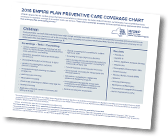Get Qualified With reed. The benefits and barriers of ensuring patients have advance care planning Introduction. What is advanced care planning? Advance care planning ( ACP ) has been shown to improve quality of life for people with life-limiting. Documenting people’s wishes.

A variety of documents can be used to record people’s end-of-life care wishes. An example of planning ahead is the ReSPECT process, where you discuss your wishes and document them in a Recommended Summary Plan for Emergency Care and Treatment (ReSPECT). This is useful for guiding your doctors and other healthcare staff in making decisions about emergency care and treatment if you cannot take part in these decisions yourself. It helps to ensure people receive the care they actually want. It improves ongoing and end-of-life care , along with personal and family satisfaction.
Families of people who have an advance care plan have less anxiety, depression, stress and are more. Not everyone will want to make an advance care plan , but it may be especially relevant for: People at risk of losing mental capacity - for example, through progressive illness. Improves the quality of end of life care provided for individuals and populations There is greater concordance with wishes if they have been discusse for example more people die in. Planning your care in advance It can be helpful to think about what care you’d like to receive in the future.

It’s a good idea to discuss your plans with your family, friends, and doctor or nurse. Creating the care plan with the person or their chosen representative will keep the focus on what is important to that individual and will enable their care and support to reflect this. Designing an MCA-compliant care and support plan requires a cultural shift from ‘traditional’ models of care planning to person-centred care planning. One of the main themes to emerge from Mitchell and colleagues’ qualitative data analysis is the importance of advance care planning (ACP) in identifying early palliative care needs and recognising the end of life. It includes reflection, deliberation, and determination of a person’s values and wishes or preferences for treatments at the end of life.
An advance statement is a written statement that sets down your preferences, wishes, beliefs and values regarding your future care. The aim is to provide a guide to anyone who might have to make decisions in your best interest if you have lost the capacity to make decisions or to communicate them. The literature on the evidence base for the benefits of advance care planning throws up mixed. Benefits of Advance Care Planning Advance Care Planning allows for care provided in alignment with the values, beliefs and preferences of the people in your care.
It often in an improvement in the person’s satisfaction with care and quality of life. That can give everyone some peace of mind. It is about doing what you can to ensure that your wishes and preferences are consistent with the health care treatment you might receive if you were unable to speak for yourself or make your own decisions.
Because advance care planning is primarily focused on determining and honoring elders’ goals in the context of the medical realities, it can result in decisions ranging from the pursuit of aggressive life-prolonging therapies to time-limited trials of life-prolonging efforts to a primary focus on comfort and prevention of pain and other distressing symptoms. Deciding what types of treatment you would or would not want should you be diagnosed with a life-limiting illness. Sharing your personal values with your loved ones.
Advance Care Planning (ACP) - the ongoing discussion and documentation of a patient’s goals, values and preferences for care - ensures that people receive the care they want, alleviates stress for families and care teams, and reduces the cost of unwante non-beneficial care. An Advance Care Plan or advance statement is a written statement that sets out your wishes, beliefs, values and preferences about your future care. It provides a guide to help healthcare professionals and anyone else who might have to make decisions about your care if you become too unwell, to make decisions or to communicate them. There are no studies so far that have looked at the overall balance between the different costs and benefits of advance care planning.
However, there are a number of studies that show that advance care planning can help to save hospital costs. It also helps families prepare for the death of a loved one, resolve family conflict, and cope with bereavement. Other benefits include less aggressive medical care and an improved quality of life near death.
Advance Care Planning Decision-making for a person with dementia in hospital with coronavirus Some people with dementia who have coronavirus will go into hospital for treatment.
No comments:
Post a Comment
Note: only a member of this blog may post a comment.